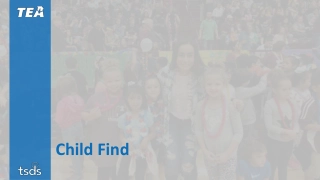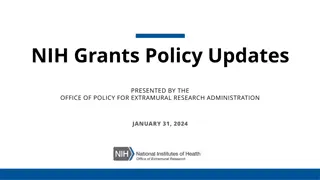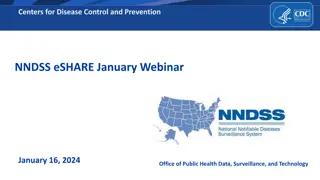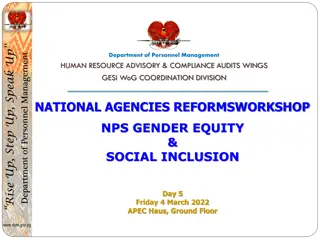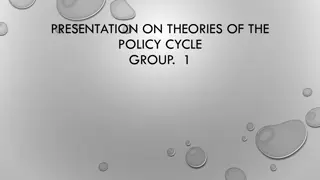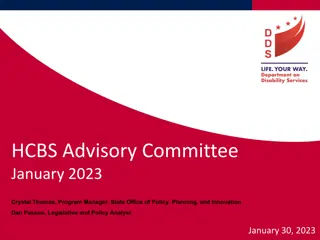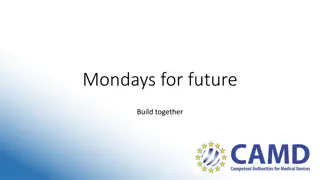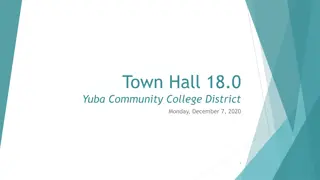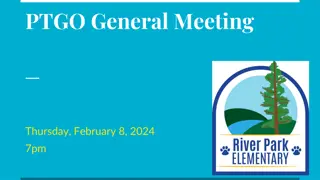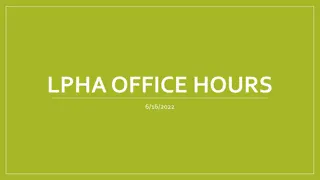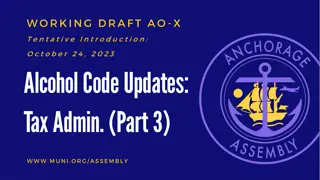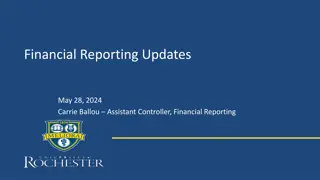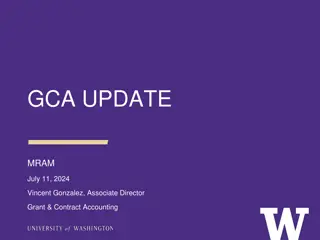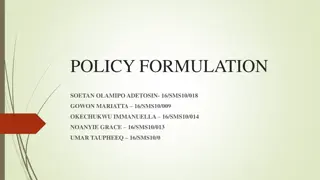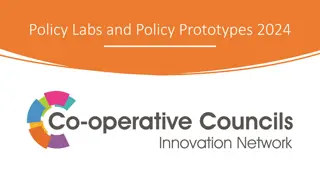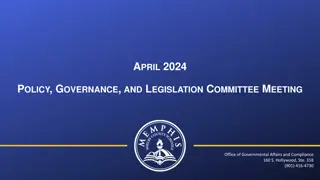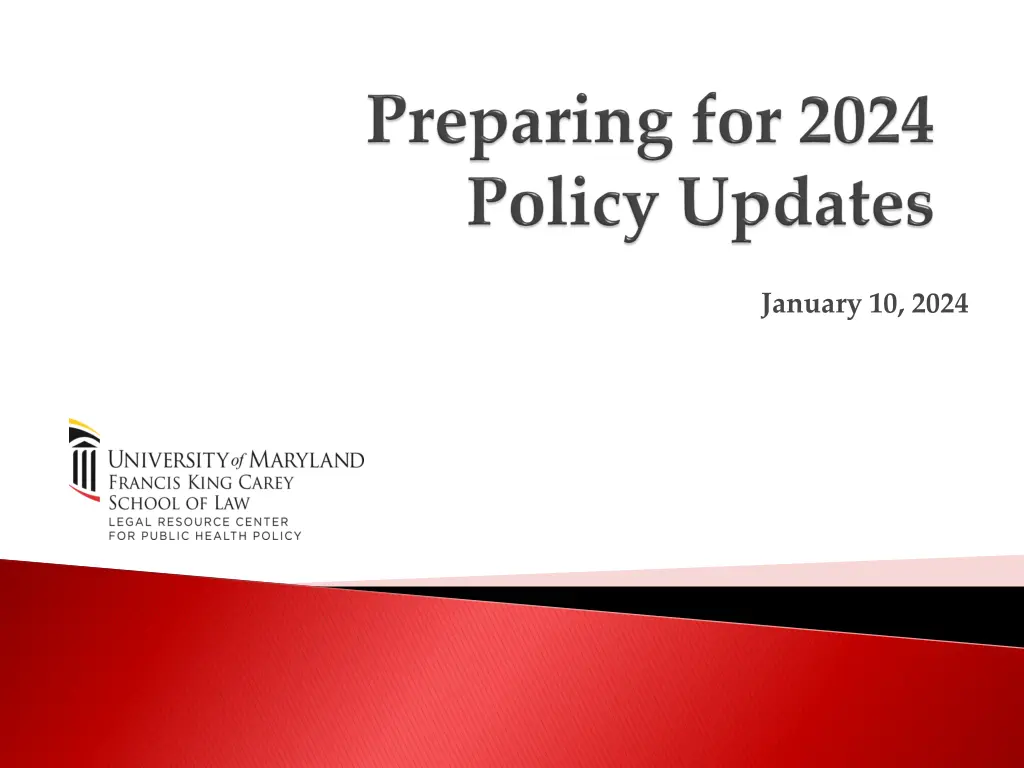
Legislative Process Overview in 2024: Important Dates, Member Composition, and Sources of Legislation
"Explore the legislative process in 2024, including key dates like session convening and bill introduction deadlines, overview of member composition, sources of legislation, finding sponsors strategically, committee assignments, and impacts on state and local government. Stay informed for effective participation in the legislative process."
Download Presentation

Please find below an Image/Link to download the presentation.
The content on the website is provided AS IS for your information and personal use only. It may not be sold, licensed, or shared on other websites without obtaining consent from the author. If you encounter any issues during the download, it is possible that the publisher has removed the file from their server.
You are allowed to download the files provided on this website for personal or commercial use, subject to the condition that they are used lawfully. All files are the property of their respective owners.
The content on the website is provided AS IS for your information and personal use only. It may not be sold, licensed, or shared on other websites without obtaining consent from the author.
E N D
Presentation Transcript
January 10: Session convenes February 5: Senate bill introduction deadline February 9: House bill introduction deadline March 18: Bill crossover date April 8: Sine die
188 Members 141 House of Delegates/47 Senate: 3 for 1 ratio Find Your Legislators 90 Citizen Legislature Four Year Cycle: 2024 2nd Year of Term Current Member Profile (2023) 188 Members 90- -Day Session/Special Sessions Day Session/Special Sessions Four Year Cycle: 2024 2nd Year of Term
Sources of Legislation: Advocacy Organizations Individuals/Community Groups Legislative Studies (Task Forces/Commissions) Administration (Governor, Executive Agencies) Sources of Legislation:
Best to look for a sponsor: In Committee that will hear bill; Delegation if impacts one County/type of County; With subject matter expertise. This is a strategic and political decision that can be difficult to undo in later years. Best to look for a sponsor:
Read by Clerk of House/Secretary of Senate Assigned to Committee sometimes assigned to 2 committees Typically, one takes lead and other will act only if passed by lead; Can have joint hearing and voting.
Impact on State and Local Government; Small Business Read it carefully; can try to get corrections but best to try to get information to drafter in advance, via sponsor; and/or earn reputation as helpful person on certain issues Point out any errors or omissions clearly and directly in written and oral testimony Note should be amended if significant amendments made to bill during session.
Do not yet have protocols for 2024 (do not expect big changes from 2023)! Everyone who signs in will be heard in person (2-3 minutes each) Some virtual testimony permitted Create panels and avoid duplication Proponents then Opponents; so rebut in advance (unless large number of people; then may alternate panels) Oral testimony should be 2-3 minutes long DO NOT READ!!!
May be assigned to a sub-committee to make recommendation to committee; focus on those members Committee Voting Sessions May make amendments; vote on them first (simple majority) Majority vote (tie does NOT pass): Favorable (with amendments); Unfavorable; No Position (rare); Refer to Interim Study (technically dead) Only favorable (or favorable with amendment) passed on to full body Floor Report Prepared Only favorable (or favorable with amendment) passed on to full body
Presented at Floor Session; Committee Reprint if extensive amendments Opportunity for question and debate May be amended; if offered, voted on first; majority carries Special Order to a date certain; Laid Over next day/session Voice Vote majority Ordered printed for third reading (except if crossed over; then passed to third reader )
May NOT be amended unless is CROSSED OVER BILL Special Order permitted (often delay tactic) Roll Call recorded vote; majority **Majority exceptions: Constitutional Amendment or Emergency Bill: 3/5 of each house Repeat in other house . . . unless CROSS FILED Repeat in other house . . . unless CROSS FILED
Must be presented within 20 days of adjournment (do not become law if not presented) GOVERNOR may: 1) sign; 2) refuse to sign (pocket veto: treated as if signed on 31stday after presentment); 3) veto (must do within 30 days of presentment) Now allowed to line item veto a budget allocation added by GA No veto of constitutional amendment Veto Override: NOT in first year of session (2023); otherwise, at first session following (whether regular or special); 3/5 vote of each house to override
Emergency: on signature of Governor (or on 7thday after presentment if not) or other date set in bill Fiscal: July 1 General: October 1 Earliest: June 1 Latest: Can be whenever in future
HB 199 SB 141 Revival from 2023 (SB 817) Requires the governing body of a multifamily dwelling to develop a smoking policy that is at least as stringent as the state and local laws
SB 186 Effectively identical to 2023 cigar lounge bill in Wicomico County (SB 795) Establishes a Class B-CL (cigar lounge) beer, wine, and liquor license in Prince George s County Cigar lounge can sell beer, wine, and liquor for on-premises consumption Exempts Class B-CL licenses in PG County from compliance with the Clean Indoor Air Act
The bill is expected to have multiple provisions related to the retail marketing of tobacco products Could include: Prohibiting self-service displays Mandatory ID checks Increase license fees Increase penalties for sales to minors
Establish a registry of vape products that are authorized for sale in Maryland ATCC can suspend/revoke a license or impose a civil penalty for selling unauthorized products
Real-time tracking of public health bills Bi-weekly Zoom updates begin January 23rd at 11:30 Email publichealth@law.umaryland.edu to be added to the listserv
2024 Maryland Tobacco Conference June 5, 2024 BWI Marriott


